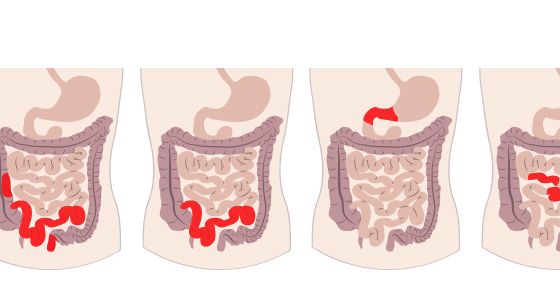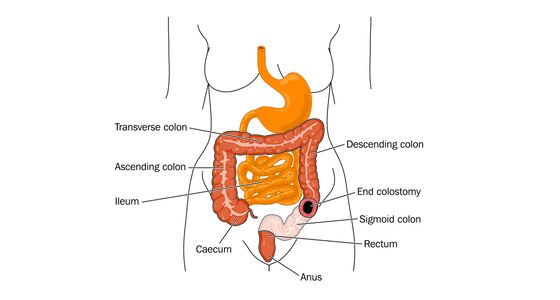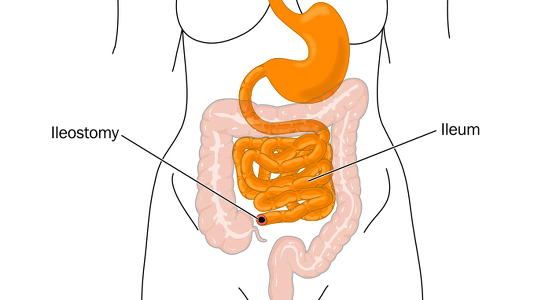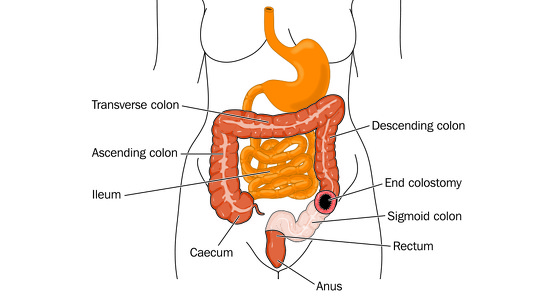If you are considering stoma surgery or have recently undergone surgery to form a stoma - whether temporary or permanent - then it’s perfectly normal to be scared and have lots of questions.
It’s important to remember that you are not alone. There are thousands of people who get stoma surgery every year - of all ages - and there’s lots of advice and support available from both healthcare professionals and fellow ‘ostomates’.
It may take you a little while to get used to the way your body now looks and to adapt to a new routine to incorporate caring for your stoma. But, having a stoma shouldn’t stop you from living your life to the full.
A stoma is a surgically created opening in your abdomen to bring part of the digestive tract to the surface.
Common types of stoma created in people with inflammatory bowel disease (IBD) are:
Stomas are usually created when part of the bowel needs to be bypassed as a result of damage from your IBD. The damaged part will often be completely removed.
You may be given a temporary stoma during a two, or more, part surgery (such as Restorative Proctocolectomy with ileo-anal pouch (J-pouch)).
After your stoma surgery you may find that you need to experiment with different types and brands of ostomy supplies to find the ones that suit you best.
You will need to regularly empty or change your stoma bag to get rid of the waste. How you do this will depend on the type of bag you use. After your surgery you will be shown how to do this.
You will also need to look after the skin around your stoma as it can become irritated by the adhesives that stick the bag to your body or by output from your stoma. There are a number of different products available - such as barrier creams - which can help with this.
You will be shown how to do all of this after your surgery before you leave the hospital.
Every person and every stoma is different and it might take a little while to get used to your new routine of caring for your stoma and changing its bag. But, once you have mastered this you should be able to resume doing most of the activities you enjoyed before.
These include:
There may be some foods that you need to avoid which affect the output of your stoma, cause more gas or cause blockages. You should aim to eat well-balanced nutritional meals and keep well hydrated by drinking lots of clear fluids. Chewing your food well will help with the digestion process.
Probably not - unless you tell them! Stoma bags are designed to be very discreet and fit underneath clothing. It’s likely that you will have met people who have stomas and not realised yourself.
However, it’s perfectly normal to be conscious of your stoma. As time passes and you become more confident with looking after it you will probably find that you start to forget you have it at all.
There are plenty of resources online which can help you build confidence.
Yes. Your chances of falling pregnant and bearing a child shouldn’t change if you have a stoma. Many women who’ve had stoma surgery go on to have several children with no problems.
Some contraceptives are not as effective for some people after stoma surgery so you should discuss this with your doctor or stoma nurse if you don’t want to get pregnant yet. If you are thinking about trying for a baby shortly after your stoma surgery then you should also discuss this with your doctor who may want to do some examinations to ensure your body has fully recovered.
Some women experience complications as the abdomen expands during pregnancy - such as stoma output being restricted. This can usually be resolved through rest and a change in diet. The shape or size of your stoma may also change and you may need to use different bag.
Having a stoma shouldn’t change your chances of having a natural birth. Your antenatal healthcare professional will be able to discuss this with you.




